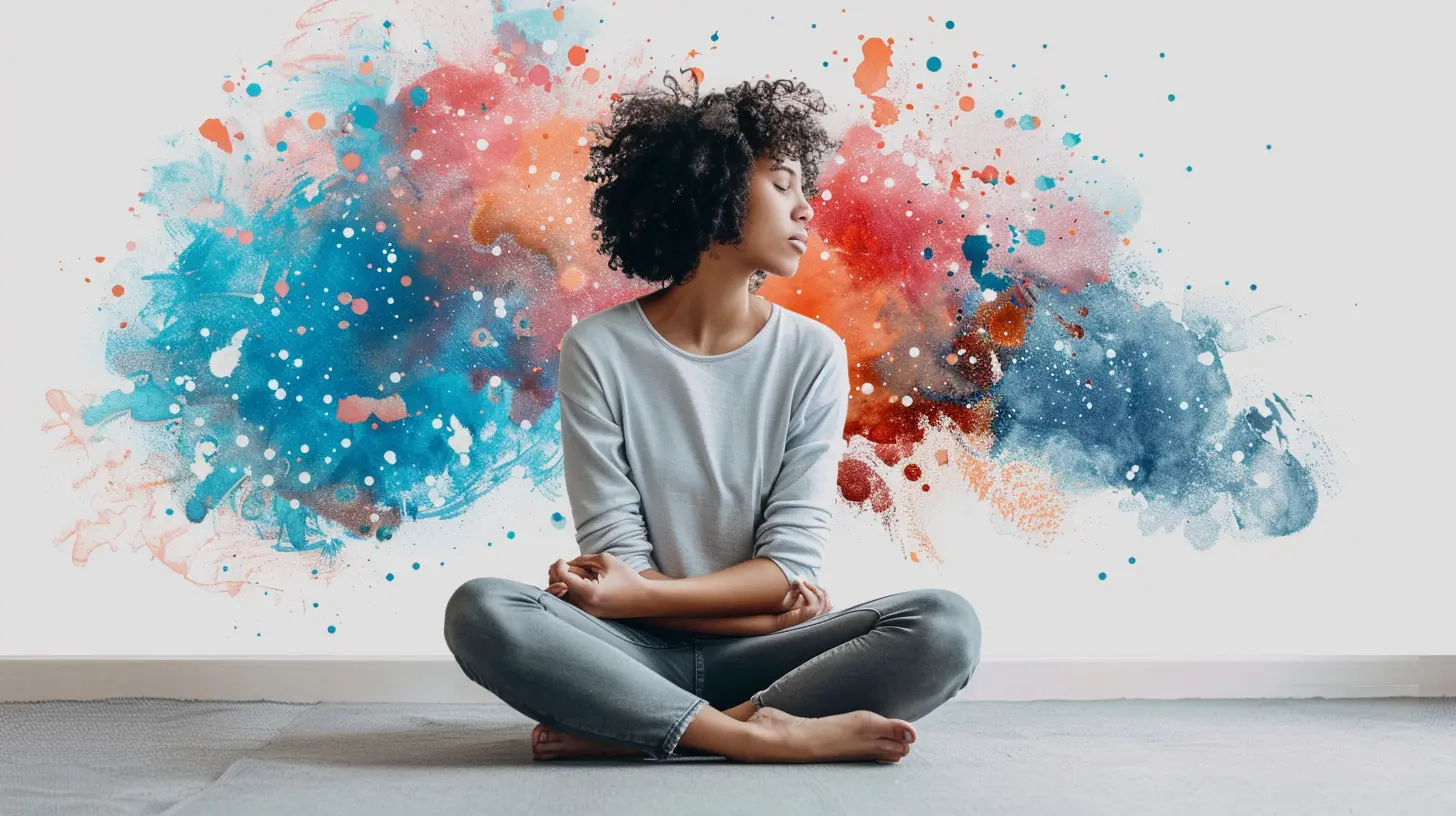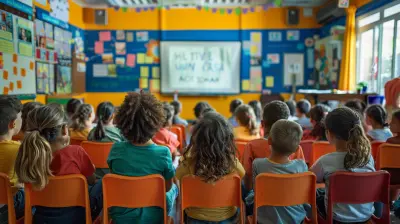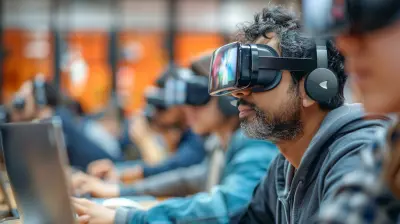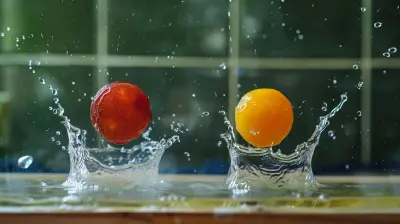The Impact of Mindfulness on Learning and Skill Retention
16 October 2025
Ever found yourself reading the same paragraph over and over again, only to realize your brain is off somewhere planning dinner or wondering what your cat just knocked over? If yes, then welcome to the club—the “I-tried-but-my-mind-has-other-plans” club. But guess what? There’s a secret weapon that can help get your brain on board: mindfulness.
Mindfulness is no longer just for yogis or people who can sit cross-legged for hours. It’s turning out to be a superpower in the classroom, the workplace, and basically anywhere you’re trying to learn something new. So buckle up, grab your favorite beverage, and let’s talk about how mindfulness can seriously level up your learning game and help you actually remember the stuff you’ve worked so hard to learn.
What Exactly Is Mindfulness Anyway?
Let’s start with the basics—mindfulness isn’t just sitting still and chanting “Om” (though that’s a vibe too). At its core, mindfulness is just being present. That’s it. Paying attention to what’s happening right now, without judging it or spiraling into a million “what if” scenarios.Imagine your brain is a browser with 99 tabs open. Mindfulness closes all the tabs except the one you actually need. Sweet, right?
In simple terms, mindfulness = awareness + attention + acceptance. And that combo has major juice when it comes to learning.
Why Your Brain Loves Mindfulness
Your brain is kind of like a sponge—but not the kind that soaks up anything. It’s picky. When you're distracted, stressed, or overloaded with information, your brain pretty much tunes out. That’s where mindfulness enters the chat.Practicing mindfulness helps reduce mental clutter. It calms the chaos, quiets the inner monologue ("Did I leave the stove on? Should I text back? Am I a fraud?"), and zones your focus in on what matters.
Here’s the deal: when you’re present, your neural pathways light up in the best ways. Attention improves. Memory solidifies. Decision-making gets sharper. And suddenly, you’re not rereading that same paragraph 17 times anymore.
The Science-y Stuff (Without the Headache)
Let’s nerd out for a hot second.Studies in neuroscience show that practicing mindfulness can actually rewire the brain. We’re talking about thickening the prefrontal cortex (the area responsible for focus and planning) and shrinking the amygdala (where stress and fear throw their parties).
Translation? More mindfulness = better self-control, less stress, and improved cognitive performance. That’s a big win if you’re trying to learn a new language, ace a test, or finally master the ukulele.
And here’s the kicker: even short-term mindfulness practice (like 10 minutes a day) can show results. You don’t need to go full Zen monk mode.
Mindfulness in the Classroom: Not Just a Trend
Mindfulness might sound like something your overly enthusiastic yoga teacher would recommend, but it’s actually making serious waves in education.Teachers are incorporating mindfulness exercises before tests, during stressful times, or even just as part of the daily schedule. Why? Because it works.
Benefits for Students:
- Improved Focus: Mindfulness helps reduce that jumpy, hyperactive feeling where you’re mentally everywhere and nowhere at once.- Better Emotional Regulation: Students don’t blow up over small stuff as much. That means a calmer classroom and more headspace for learning.
- Increased Retention: When your mind is present, it’s like taking mental snapshots of the material. Way more effective than cramming with Red Bull at 2 AM.
Whether it’s doing a quick breathing exercise before a test or practicing mindful walking during recess, these tiny habits add up—big time.
Real Talk: Why Learning Without Mindfulness Feels Like Swimming in Honey
Let’s be honest—learning is hard. Especially when you’ve got notifications buzzing, to-do lists growing, and a brain that just can’t sit still.Trying to learn without mindfulness is kind of like trying to pour water into a glass that’s already full. Everything just spills over. You’re reading, but not absorbing. Listening, but nothing’s sticking. Practicing, but muscle memory isn’t firing.
Mindfulness empties that glass so you’ve actually got space for new stuff. It doesn’t make the material easier—it just clears the runway for takeoff.
Skill Retention: Mindfulness Is the Glue
Now let’s talk about skill retention. It’s not just about learning something once—it’s about keeping it in the vault for later. That means turning short-term knowledge into long-term wins.Mindfulness helps in three major ways:
1. Better Sleep = Better Memory
And mindfulness brings better sleep. When you're mindful, you're less anxious. And when you’re less anxious, sleep quality goes up. The magic happens during sleep when your brain locks in and organizes everything you learned that day.
2. Enhanced Neuroplasticity
That’s a fancy way of saying your brain gets better at adapting and storing new info. Mindfulness boosts this. It’s like stretching before a workout—your brain just performs better.
3. Lower Stress, Higher Recall
Ever blanked during a test even though you studied like crazy? That’s stress hijacking your recall. Mindfulness lowers cortisol (your stress hormone), so your brain doesn't freeze under pressure.
In short, mindfulness isn't just good during learning—it’s crucial after. It's the glue that helps stuff stick.
Practical Ways to Bring Mindfulness into Your Learning Routine
Alright, all this sounds great, but how do you actually do it? Don’t worry—you don’t need to buy incense or live on a mountain (unless you want to).Here are some simple, non-cringey ways to bring mindfulness into your daily learning:
1. Two-Minute Breathing Breaks
Set a timer for two minutes. Close your eyes. Inhale through your nose, exhale through your mouth. Focus only on your breath. Boom—your brain just got a mini spa treatment.2. Mindful Transitions
Before switching tasks (like moving from math to writing), pause for 15 seconds. Take a breath. Let go of the previous task. Reset your brain.3. Single-Tasking
Multitasking is a myth. Your brain switches quickly between tasks, but you lose focus each time. Try focusing on just one thing until it’s done. It’s wildly effective.4. Body Scans
Sit or lie down. Mentally scan your body from head to toe. Take note of tension or discomfort. This helps center your awareness and drop into the present moment.5. Gratitude Journaling
Before or after studying, write down 3 things you’re grateful for. Being in a positive state of mind helps cement knowledge much better than when you're in stress mode.Mindfulness for Educators and Parents
It’s not just students who benefit. Educators and parents play a massive role in modeling and supporting mindfulness.Teachers who practice mindfulness report less burnout, better emotional regulation, and stronger classroom management. Parents who encourage mindfulness at home create a safe environment where kids feel calm and supported—which makes learning a whole lot easier.
So yeah, it’s a win-win-win.
Busting the Most Common Myths About Mindfulness
Let’s clear the air:- “It’s too woo-woo.” Nope, it’s backed by science.
- “I don’t have time.” Got five minutes? That’s all you need.
- “I can’t clear my mind.” That’s not the point. It’s about noticing your thoughts, not eliminating them.
Mindfulness isn’t about perfection—it’s about progress. You’ll have good days and squirrel-brain days. And that’s totally okay.
Final Thoughts: Make Mindfulness Your Secret Sauce
Here’s the deal—mindfulness won’t magically make you a straight-A student or a piano prodigy overnight. But it absolutely will help you show up, stay present, and actually retain what you learn.It’s like giving your brain a user manual—and honestly, we could all use one of those.
Next time you sit down to study or pick up a new skill, try sprinkling in a bit of mindfulness. Like salt on fries, it just makes everything better.
Now go forth and be mindful, my friend. Your brain will thank you.
all images in this post were generated using AI tools
Category:
Skill DevelopmentAuthor:

Bethany Hudson
Discussion
rate this article
1 comments
Lys Gray
Mindfulness enhances focus, supporting better learning and skill retention.
October 24, 2025 at 11:10 AM

Bethany Hudson
Thank you! I'm glad you found the connection between mindfulness, focus, and learning important. It's fascinating how mindfulness practices can truly enhance our ability to retain skills and knowledge.


